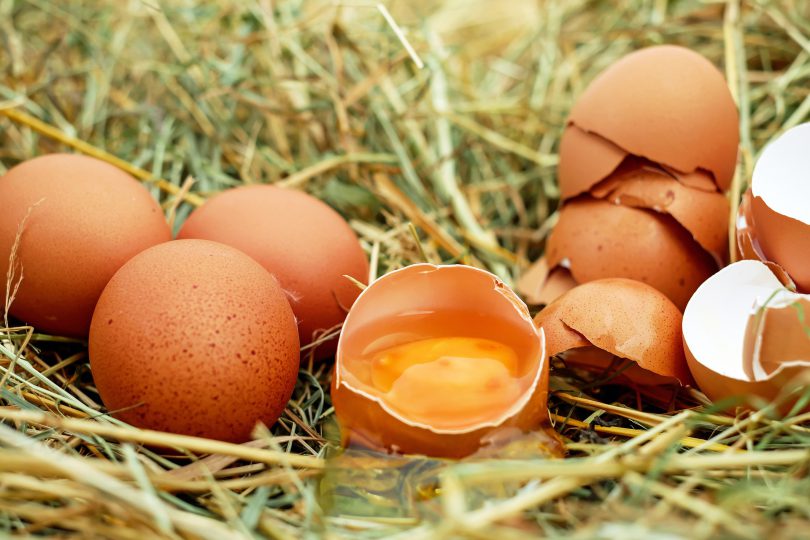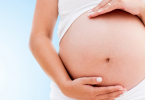Julia squints to read the fine print on the vitamin box she is holding in her hand: “Folic acid, vitamin D, iodine, choline… .. Choline? What is that?” Patrick, her partner and father of her future child, frowns:” I’ve never heard of that. And it is in your prenatal vitamins? I have to go and see if I can find out exactly what this is for. “
Julia and Patrick are generally very well informed. Ever since they took the big decision to have a baby, they wanted to make sure that the future offspring is not lacking for anything. In line with unanimous expert opinion, in addition to a healthy lifestyle and diet they supplemented important micronutrients with special fertility vitamins from the very beginning. Since Julia became pregnant, they have gathered a lot of information about what happens during pregnancy and what to watch out for. And now they will swap the fertility vitamins for prenatal vitamins.
They have read that it is very important for mother and child to compensate for the increased nutritional requirements during pregnancy and breastfeeding. In addition to folic acid, vitamins B12 and D as well as the minerals magnesium, iron and iodine are mentioned a lot.
Choline
In addition to these long-established recommendations, nutritionists have been gaining insights into the importance of the nutrient that Julia and Patrick stumbled upon on the package of their prenatal vitamins: choline.
Although it is not that well known, choline is a perfectly normal part of the diet. It is found in a wide variety of foods, such as legumes, broccoli, nuts, seeds, whole grains, poultry, dairy products, meat, eggs, and fish. In a relatively small amount, choline can even be produced in the human liver as phosphatidylcholine (also known as lecithin), but this is usually not enough in terms of quantity and therefore it hast o be eaten as well. The daily requirement is significantly increased during pregnancy and breastfeeding and often cannot be covered by food.
Cholin’s diverse tasks in the body
Choline is of great importance in our body as a component of so-called phospholipids, which are the structural components of all of our cell membranes. In brain and neurons, choline is converted to acetylcholine, one of the most important neurotransmitters in our nervous system. As part of bile, choline emulsifies dietary fats and is involved in the removal of triglycerides (fats) from liver. In addition to that, it acts a methyl group donor and thus relieves folic acid metabolism.
The importance of choline for neural and cognitive development of the unborn and infant
Since choline, as described above, plays a role both as a building block for cell membranes (phosphatidylcholine) and as a messenger substance in the brain (acetylcholine), it is not surprising that it has a key part in the neuronal development of the unborn child. In studies, infants born to mothers with a high choline intake showed improved learning and memory performance. Later, mental health also seems to benefit. Studies have shown that children of mothers with a good supply of folic acid, vitamin D, omega-3 fatty acids and choline have a lower risk of psychological problems. Furthermore, initial studies on mice indicate that the positive effects of choline also extend to the development of eyesight.
Good choline supply as a protective factor
In addition, a good supply of choline during pregnancy also seems to have an important protective function. A scientific study from 2020 showed that good maternal choline supply was able to reduce the harmful influence of marijuana consumption on the brain development of the child during pregnancy. Fortunately, this is of course a very rare case, but it does emphasize choline’s importance. Another observation is much more common in everyday life: If the expectant mother suffers from an infection during pregnancy, this may impact the development of the child’s sensitive brain. A good choline supply seems to be an important protective factor in this situation, too. Whether this applies to the new Sars-Cov2 coronavirus as well is of current importance. While there is no previous experience with COVID-19, adverse effects on fetal brain development of the most common coronaviruses are alleviated by higher choline levels, according to previous research. Therefore, many experts advise to ensure that there is an adequate supply of choline during pregnancy.
Choline deficiency – negative for mother-to-be
A sufficient supply of choline is not only important for the little one, but also for the future mom. Since it is also important for maternal homocysteine breakdown and liver function, too little choline intake during pregnancy can lead to increased homocysteine levels. These, in turn, are considered a risk factor for pregnancy complications such as preeclampsia, prematurity and low birth weight. The need for choline is significantly increased during pregnancy and breastfeeding. Pregnant women are recommended to take up 450 mg daily, breastfeeding women even 550 mg per day. An undersupply of pregnant and breastfeeding women is unfortunately very common, 90% do not reach the recommended intake.
Inclusion of choline in the official recommendations for prenatal supplements
For this reason, international nutrition experts have recently been in favor of including choline in supplements for pregnancy and breastfeeding. US health authorities have already included choline in their official recommendations for prenatal supplements, but in Europe, the authorities are still lagging behind. It is therefore not surprising that there are not so many products for pregnant and breastfeeding women on the European market which contain choline and even well-informed people like Julia and Patrick do not always know the importance of choline.
References
Chowdhury P, Pathak P. Neuroprotective immunity by essential nutrient “Choline” for the prevention of SARS CoV2 infections: An in silico study by molecular dynamics approach Chem Phys Lett. 2020 Dec 16;761:138057. doi: 10.1016/j.cplett.2020.138057. Epub 2020 Oct 3.
Freedman R, Hunter SK , Law AJ, D’Alessandro A , Noonan K , Wyrwa A , Hoffman MC. Maternal choline and respiratory coronavirus effects on fetal brain development. J Psychiatr Res. 2020 Sep;128:1-4. doi: 10.1016/j.jpsychires.2020.05.019. Epub 2020 May 25.
Hoffman MC, Hunter SK, D’Alessandro A , Noonan K, Wyrwa A, Freedman R. Interaction of maternal choline levels and prenatal Marijuana’s effects on the offspring. Psychol Med. 2020 Jul;50(10):1716-1726. doi: 10.1017/S003329171900179X. Epub 2019 Jul 31.
Li Y,Freedman R. Prospects for improving future mental health of children through prenatal maternal micronutrient supplementation in China Pediatr Investig. 2020 Jun 24;4(2):118-126. doi: 10.1002/ped4.12199. eCollection 2020 Jun.
Mun JG, Legette LC, Ikonte CJ, Mitmesser SH. Choline and DHA in Maternal and Infant Nutrition: Synergistic Implications in Brain and Eye Health. Nutrients 2019, 11, 1125; doi:10.3390/nu11051125
Trujillo-Gonzalez I, Friday WB , Munson CA, Bachleda A , Weiss ER , Alam NM, Sha W , Zeisel SH, Surzenko N. Low availability of choline in utero disrupts development and function of the retina. FASEB J. 2019 Aug;33(8):9194-9209. doi: 10.1096/fj.201900444R. Epub 2019 May 15.
Zeisel SH, da Costa KA. Choline: an essential nutrient for public health Nutr Rev. 2009 Nov;67(11):615-23. doi: 10.1111/j.1753-4887.2009.00246.x.







